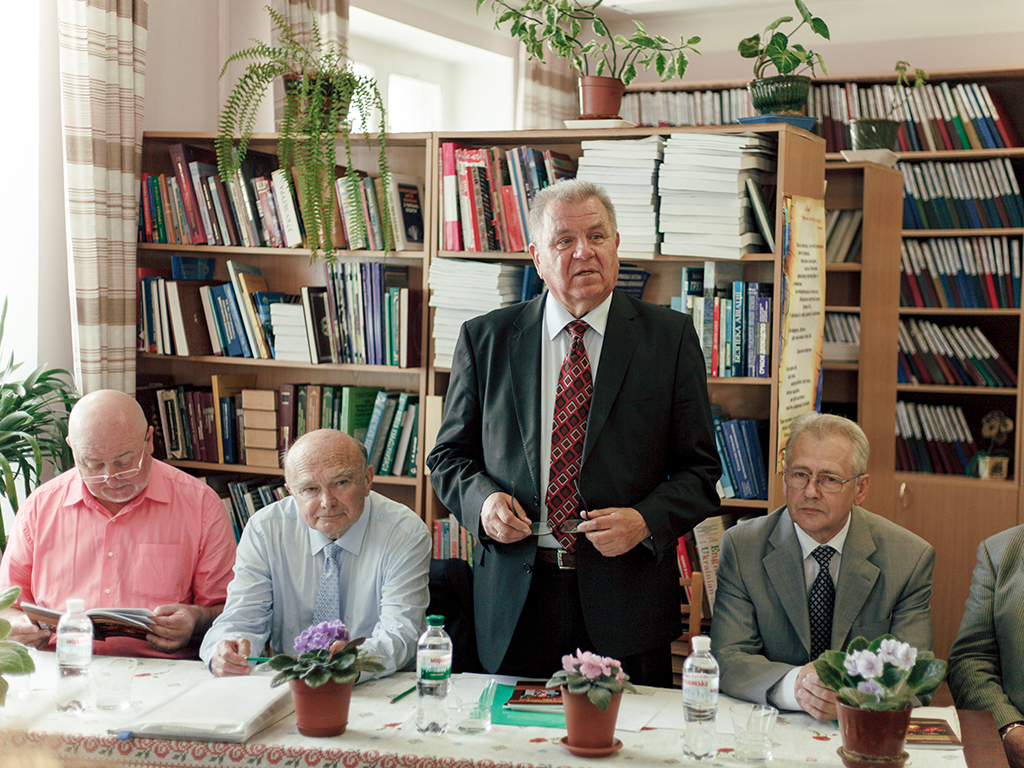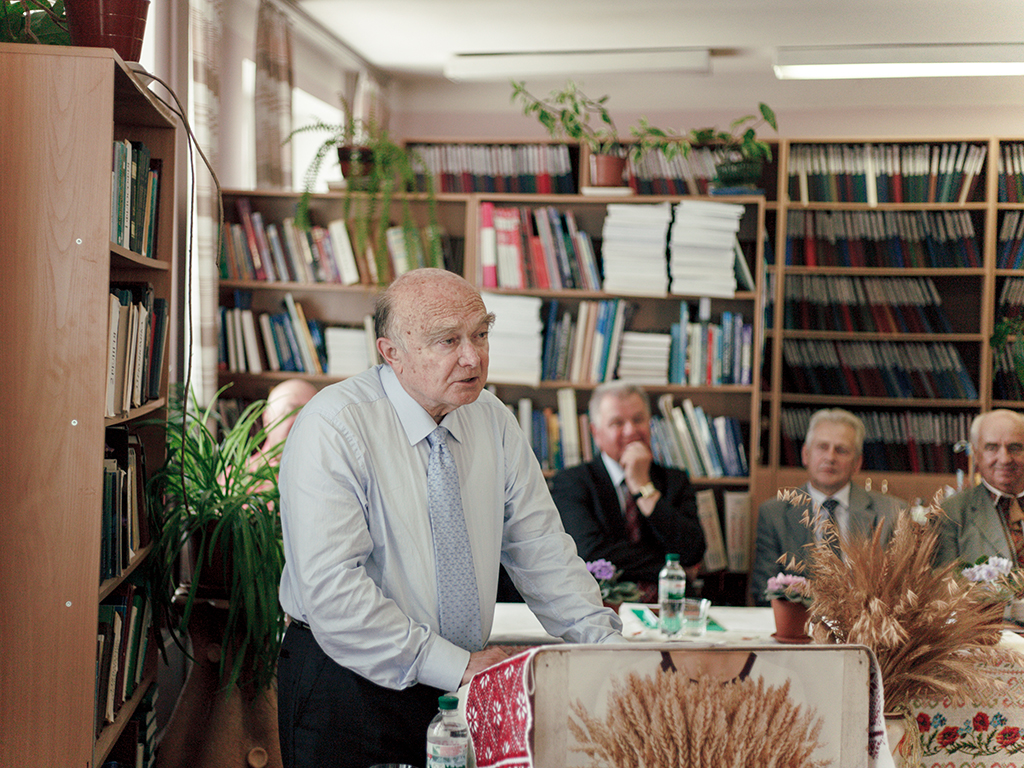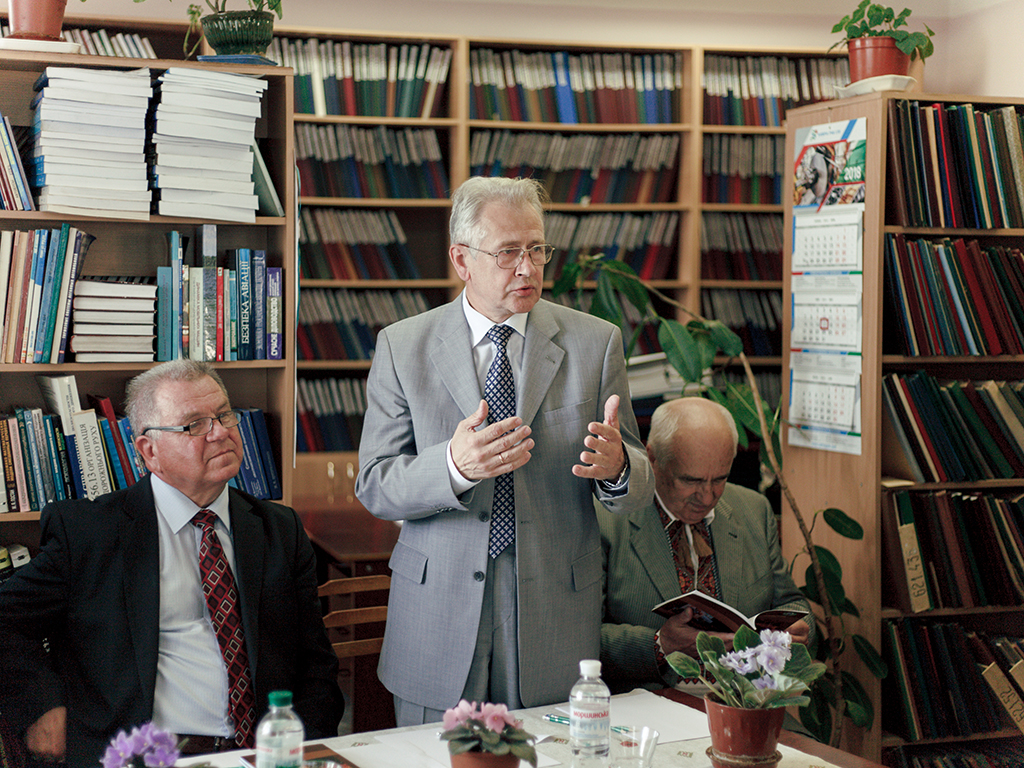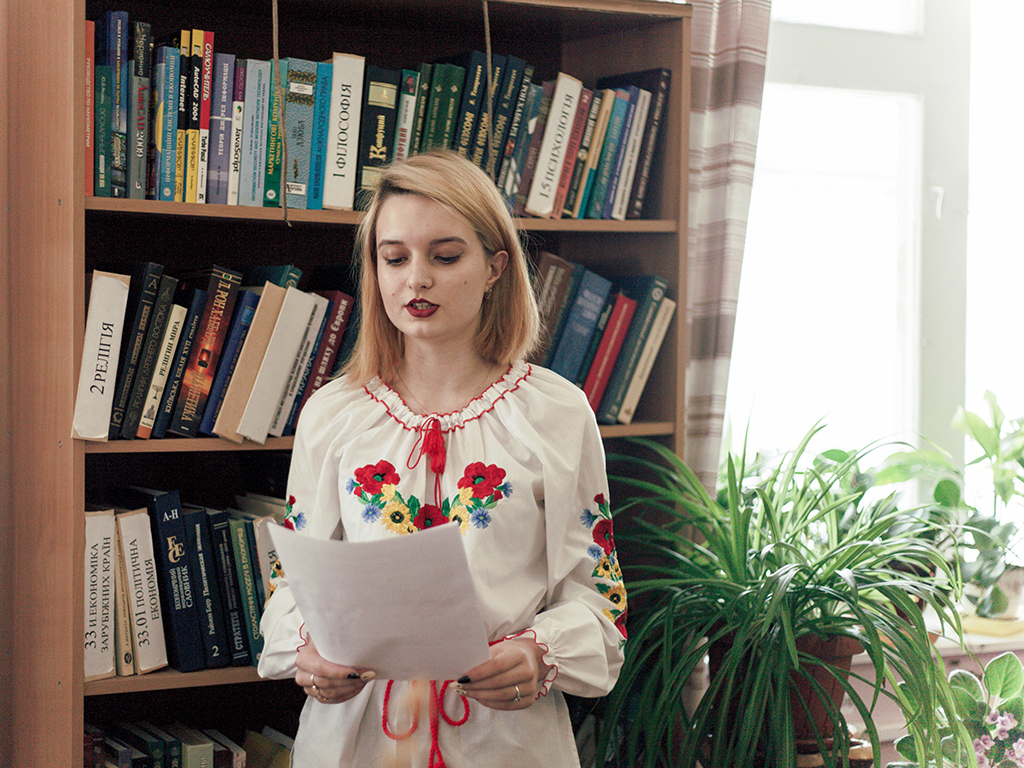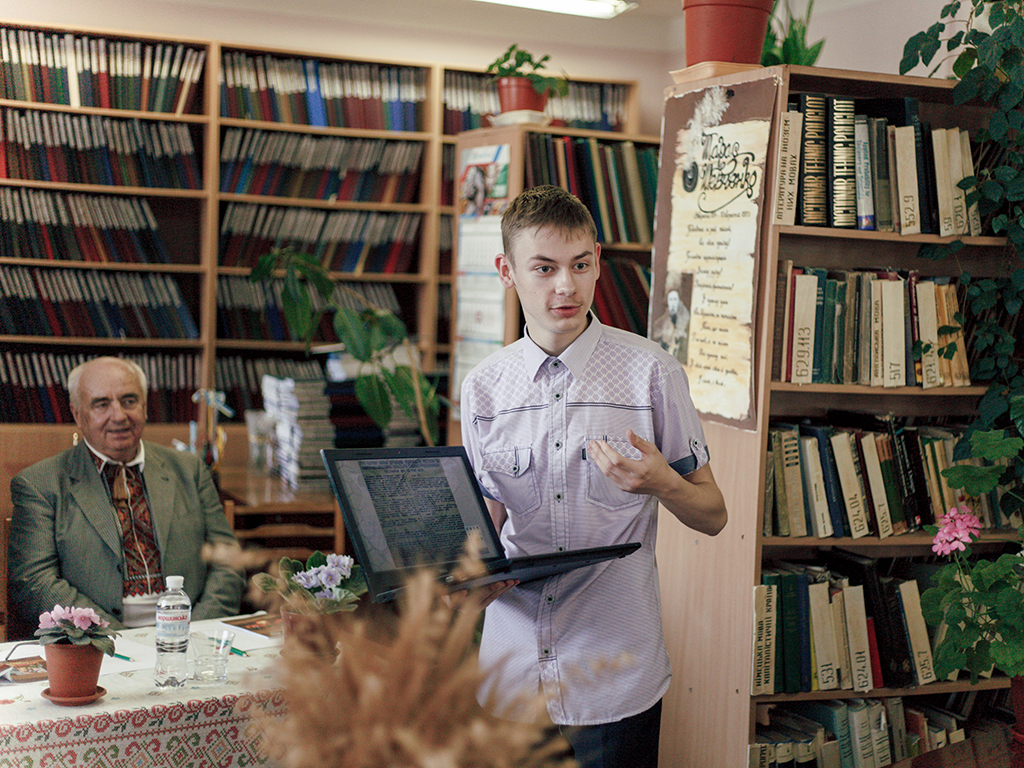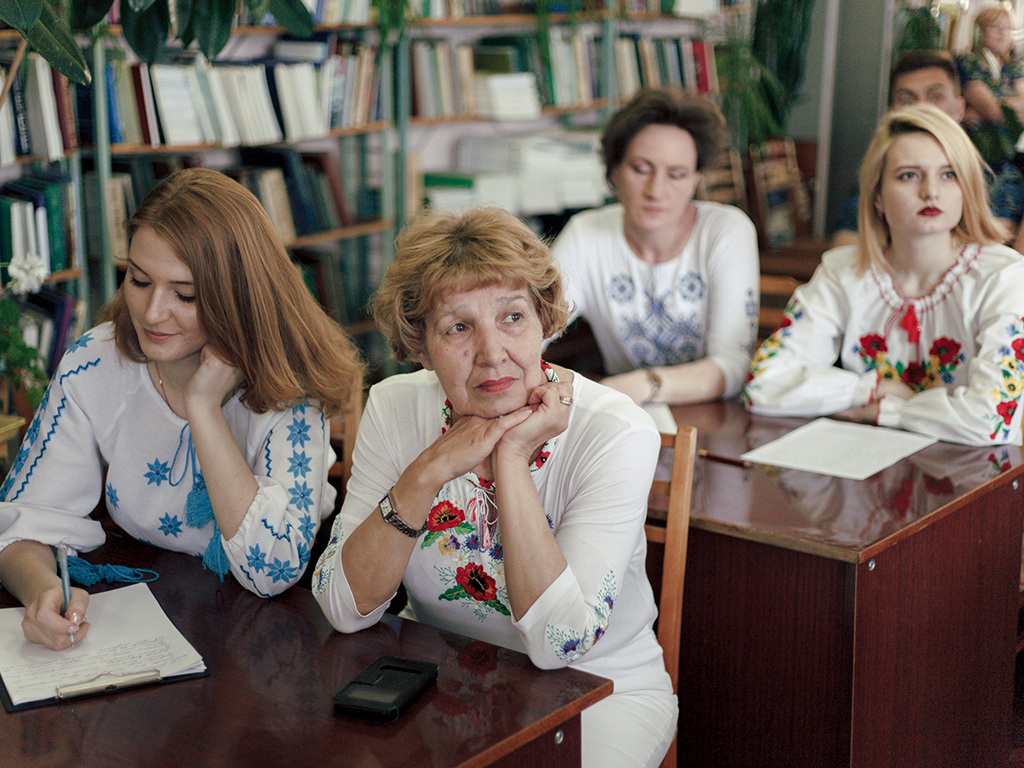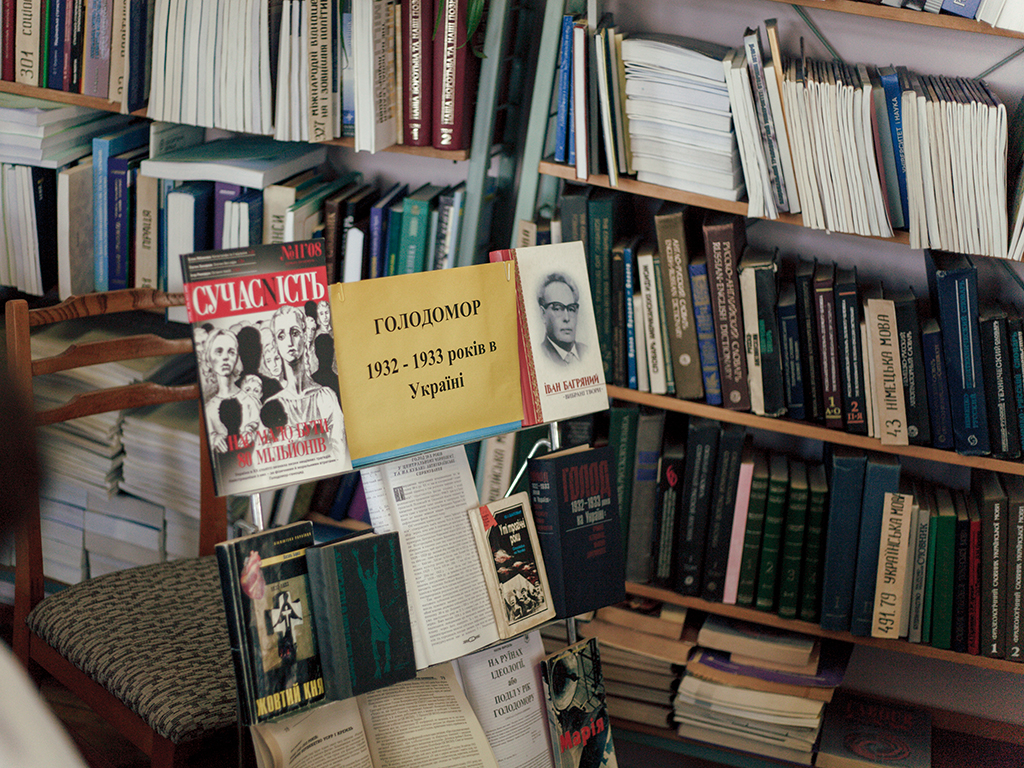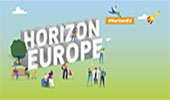May 17, 2018
On May 17, 2018 the scientific and technical library of National Transport University held a special session “Holodomor 1932-1933 in Ukraine: genocide, ethnocide, peasantcide” which was organized within the frame of the LXXІV-th scientific conference for teaching staff, postgraduates, students and members of separate units of the University and was dedicated to the 85th anniversary of the Holodomor 1932-1933 in Ukraine.
The head of the Department of Theory and History of State and Law Prof. Borys Khoroshun made an opening speech for the conference.
Vice-Rector for Academic Work Prof. Oleksandr Hryshchuk delivered a welcome speech for the conference.
Well-known scholars and historians, representatives of academic science, researchers of the Holodomor 1932-1933 in Ukraine Stanislav Kulchytskyi and Yurii Shapoval took part in the conference.
The participants of the conference, teaching staff and students of National Transport University in their reports touched upon various aspects of the Holodomor 1932-1933 in Ukraine as a genocide of the Ukrainian people.
A fascinating report was made by the well-known Ukrainian historian, Chief Research Scientist of the Institute of History of Ukraine of the National Academy of Sciences of Ukraine Stanislav Kulchytskyi, who emphasized that the Holodomor in Ukraine had a specific nature and cannot be compared with other famines. The Holodomor was aimed at extermination of the Ukrainian peasantry. It was created and used as a means to exterminate the Ukrainian substance of the people.
Prof. Yurii Shapoval, the Chief Research Scientist of the Kuras Institute of Political and Ethnic Studies of the National Academy of Sciences of Ukraine, dealt in his report with the figure of James Mace, an American historian, and his role in the study and recognition of the Holodomor 1932-1933 in Ukraine as a genocide of the Ukrainian nation.
Interesting reports were presented by O. Makarevskyi “Black boards” as a means of punishing of rural population during the Holodomor” (research supervisor: Dr. Galyna Gerzhod) and V. Tarycheva “The theme of the Holodomor in Ukrainian literature” (research supervisor: Senior Lecturer Tetiana Voloshyna). Cooperation between students and renowned historians has considerable cognitive and educational significance for students.
Summing up the session, Prof. Borys Khoroshun emphasized that the main lesson to be learned by the Ukrainian people from the fact of the Holodomor 1932-1933 was that genocide with such cynicism and on such scale could only be carried out on people who were deprived of their own statehood, over the people who could not define their destiny in their own country. The crime against the Ukrainian people was possible also due to the fact that the party-state leadership of the republic took a hesitant and unprincipled position in defending national interests, acted in favor of Moscow and, in this regard, was fully responsible for the crime.
Holding such event on the occasion of the 85th anniversary of the Holodomor 1932-1933 contributes to dissemination of information on the Holodomor 1932-1933 committed by the Communist regime, the massive artificial famines of 1921-1923 and 1946-1947, commemorating their victims, and promoting studying of Ukrainian history, nurturing patriotism and tolerance among the citizens, especially the student youth.
